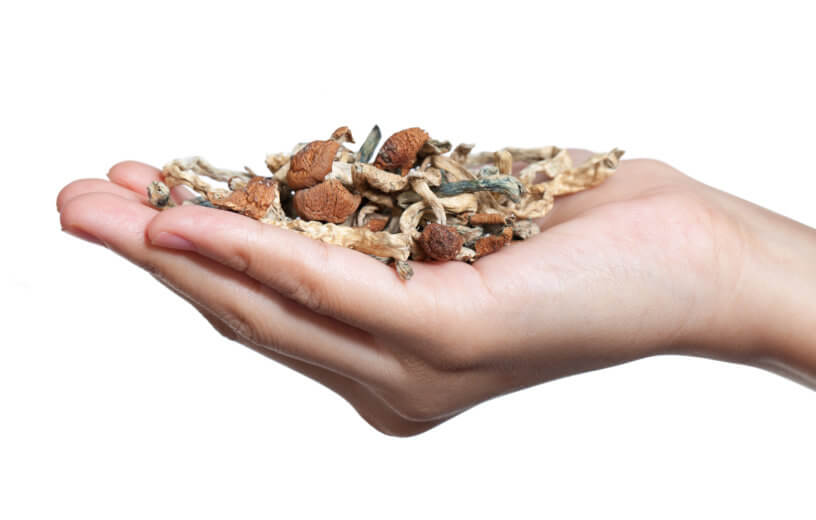COLUMBUS, Ohio — Psychedelic drugs like magic mushrooms or LSD don’t usually intersect with topics like racism and racial injustice. However, it isn’t the 1960s anymore and in recent years doctors and scientists alike have opened up to the idea that the impact of such substances could offer some therapeutic benefits. Now, a team from The Ohio State University finds just one positive “trip” on a psychedelic drug can help African-American, Indigenous, and all other people of color dealing with trauma from a previous encounter with racism.
Researchers report that a single psychedelic experience helped participants lower stress, anxiety, and depression levels linked to traumatic past racism-related events. Subjects reported experiencing benefits within 30 days of either receiving a dose of psilocybin (“magic” mushrooms), LSD, or MDMA (ecstasy).
“Their experience with psychedelic drugs was so powerful that they could recall and report on changes in symptoms from racial trauma that they had experienced in their lives, and they remembered it having a significant reduction in their mental health problems afterward,” says Alan Davis, co-lead author of the study and an OSU assistant professor of social work, in a university release.
Generally speaking, the more “intensely spiritual” or profound the experience was, the more it helped with trauma-related symptoms.
Psychedelics gaining acceptance in modern medicine
The notion of psychedelic drugs finding a role as a therapeutic aid within a controlled setting is becoming less and less fringe. This research however, is the first ever to test the influence of such substances on trauma connected to racial injustice.
“Currently, there are no empirically supported treatments specifically for racial trauma. This study shows that psychedelics can be an important avenue for healing,” comments study co-author Monnica Williams from the University of Ottawa.
A total of 313 people from the U.S. and Canada participated in the research. All of those individuals reported taking a psychedelic drug in the past that they believe had helped provide “relief from the challenging effects of racial discrimination.” Study subjects came from a number of different racial backgrounds including Hispanic, Black, Asian, Native American, Native Hawaiian, and Pacific Islander.
Looking back on troubling events
First, everyone filled out a survey asking about their past experiences with racial trauma, psychedelic drugs, and overall mental health. Another survey asked participants to describe a prior psychedelic experience, as well as its short and long term effects. For some, these drug experiences took place as recently as a few months ago while others recalled events from over a decade ago.
Examples of racist incidents reported by study subjects include unfair treatment at the hands of neighbors, teachers, or bosses. Many also recalled being wrongly accused of unethical behavior and acts of physical violence. A common, recurring theme among many participants’ reports was feelings of intense anger about having to endure racist behavior. Many also described a burning desire to “tell the perpetrator off” for their racist acts. The vast majority of times, however, participants report letting it go and saying nothing instead.
Researchers then had the group rate the severity of anxiety, depression, and stress symptoms their encounters caused in both the 30 days just before and the 30 days after having a psychedelic experience. Of course, racism is certainly something one can encounter frequently throughout life. To account for this cumulative link between racial trauma and mental health, the OSU team also explored symptoms with a connection to discrimination-related post-traumatic stress disorder (PTSD).
“Not everybody experiences every form of racial trauma, but certainly people of color are experiencing a lot of these different types of discrimination on a regular basis,” Davis explains. “So in addition to depression and anxiety, we were asking whether participants had symptoms of race-based PTSD.”
Which ‘trip’ works best at easing trauma?
Study authors also asked participants which type of psychedelic experience they had; mystical, challenging, or insightful. A mystical trip is often described as feeling connected to a divine entity. An insightful trip is usually increases awareness and understanding of one’s self. A challenging trip, on the other hand, may cause negative side effects like anxiety or difficulty breathing.
All in all, every single participant said their mental health was in a better place after taking a psychedelic substance.
“What this analysis showed is that a more intense mystical experience and insightful experience, and a less intense challenging experience, is what was related to mental health benefits,” Davis notes.
While the results appear very promising, researchers admit their work is somewhat limited by the fact that the findings are reliant on a person’s memories of the events. Also, all of the participants included had said from the start that they had a positive drug experience. The team finds it can’t be declared with any degree of certainty at this point that every single person of color who takes a psychedelic drug will reap the same benefits.
“This was really the first step in exploring whether people of color are experiencing benefits of psychedelics and, in particular, looking at a relevant feature of their mental health, which is their experience of racial trauma,” Davis concludes. “This study helps to start that conversation with this emerging treatment paradigm.”
The study is published in Drugs: Education, Prevention and Policy.
